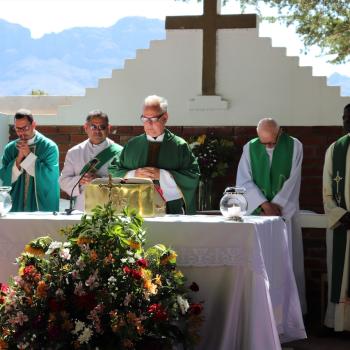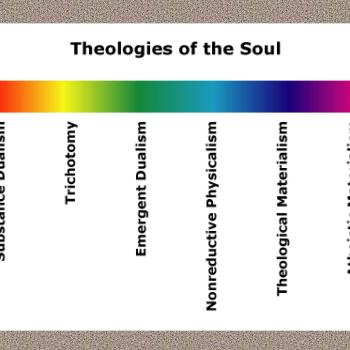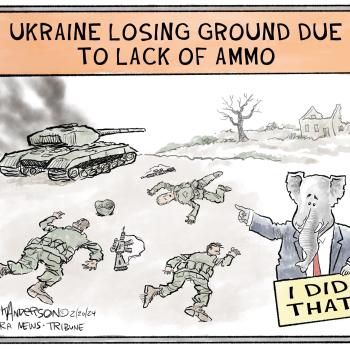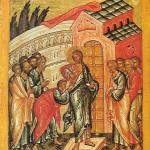This week’s 6 Quick Takes on Christian persecution around the globe include kidnappings, murders, beatings, false imprisonment and legal discrimination.
In other words, these quick takes are the usual sad story of what Christians endure for Christ just about everywhere on this planet. Two of the stories involve legal discrimination in the “Christian” West. Both of them are instances of governments applying legal penalties for Christians who seek to practice their faith in the workplace. Ironically, they are examples of “tolerance” statutes carried to their illogical and intolerant extreme.
Every one of these stories is becoming almost cliche in today’s world. Violent persecution of Christians by government tolerated mobs occurs in places like Africa, the Middle East and India. Legal persecution by the government itself happens in totalitarian states like Viet Nam. Meanwhile, a move toward totalitarianism in which the state attempts to deprive its citizens of the rights to individual conscience and religious liberty that it has heretofore guaranteed occurs in both the UK and the USA.
Here, for your prayerful study, are the 6 Quick Takes on Christian Persecution for this week.
1. Three U.K. Christians’ Appeals Denied by European Court on Human Rights in the Name of “Equality”
Jun 3rd 2013
In a display of growing secularism, the European Court on Human Rights recently rejected hearing cases of alleged discrimination against three Christian U.K. nationals. Shirley Chaplin, Gary McFarlane, and Lillian Ladele each claim to have suffered employment discrimination for expressing their faith—one having been demoted for refusing to remove a cross necklace at work, another was disciplined for refusing to conduct same-sex marriages, and the last having been fired for refusing to provide relational counseling to same-sex couples. Secularist groups praised the court’s rejection of the cases, claiming the rejection as yet another step in stopping “a small coterie of Christian activists [from] obtain[ing] special privileges for themselves”—”special privileges” like being able to sport cross necklaces and determine one’s own clients. (Read the rest here.)
2. Anti-Christian Violence in Vietnam
Anti-Christian violence is an ever-present danger for church leaders and members in Vietnam, which has been under Communist rule since 1975 and where Christians make up just 9% of the population. In just two incidents from 2012, a pastor was beaten unconscious with iron bars, suffering multiple injuries, and a woman was left with a fractured skull when a congregation was attacked as they gathered for a service; dozens of others were injured. The assaults were the work of thugs believed to have been hired by the authorities to harass and intimidate Christians.
It is striking that those injured in these incidents belonged to churches that were actually registered with the authorities. Registration is required by law and allows congregations to obtain official approval for their places of worship. But registered churches are regulated and controlled, and their legal protections are vague and uncertain. The registration process is also slow, and some applications are unsuccessful.
The position of Vietnam’s unregistered churches is even more insecure, and they are particularly vulnerable to harassment, arrests and imprisonment. In 2012 the pastor of a house church was jailed for eleven years on a charge of “disrupting national unity”.
Despite the authorities’ supposed approval of charitable work, the past year has also seen cruel attacks in the capital, Hanoi, on both a Christian orphanage and a church-run colony for leprosy patients. The children were beaten by the attackers, and the residents of the colony were terrorised by abuse and threats. (Read the rest here.)
3. Syrian bishops kidnapped in Aleppo still missing one month on
Officials say whereabouts of Yohanna Ibrahim and Boulos Yazigi remain unknown despite international efforts to secure release
Bishop Boulos Yazigi, left, and archbishop Yohanna Ibrahim were abducted by gunmen on 22 April in Aleppo, Syria. Photograph: HOPD/AP
One month after two Orthodox Christian bishops were kidnapped by gunmen in Syria, officials say they still have no idea what has happened to the missing prelates.
The clerics, the most senior church officials to be targeted since civil war engulfed the country, have not been heard of since their abduction at gunpoint in the northern city of Aleppo on 22 April.
“We are deeply worried for the lives of archbishop Mor Gregorius Yohanna Ibrahim of the Syriac Orthodox Church and bishop Boulos Yazigi of the Greek Orthodox Church,” said Katrina Lantos Swett, who chairs the US Commission on International Religious Freedom (Uscirf).
“These two religious leaders put aside their own safety by travelling to one of the worst areas of fighting to help those Syrians left with few basic necessities after more than two years of war,” she said in a statement released on Tuesday. (Read the rest here.)
4. Washington attorney general sues florist over refusal to provide flowers for same-sex wedding
Bob Ferguson, the State of Washington’s attorney general, has announced that he is filing a consumer protection lawsuit against a florist who refused to provide flowers for a same-sex wedding.
“Under the Consumer Protection Act, it is unlawful to discriminate against customers on the basis of sexual orientation,” Ferguson stated in a press release. “If a business provides a product or service to opposite-sex couples for their weddings, then it must provide same-sex couples the same product or service.”
Barronelle Stutzman, the owner of Arlene’s Flowers and Gifts in Richland, Washington, explained her decision not to provide flowers for a customer’s same-sex wedding.
“He said he decided to get married, and before he got through, I grabbed his hand and said, ‘I am sorry. I can’t do your wedding because of my relationship with Jesus Christ,’” she said. “We hugged each other, and he left, and I assumed it was the end of the story.” (Read more here.)
5. MASSACRE OF CHRISTIAN VILLAGE IN SYRIA; ALMOST 40 PEOPLE KILLED
A Christian village in Syria was savagely attacked and almost 40 of its residents, including women and children, killed by opposition fighters, as UN investigators warned of increasing radicalisation among the rebels.
One of Barnabas Aid’s Syrian partners said that two of his relatives in Dweir were severely tortured by the rebels, who broke some of their bones and started to burn their bodies before shooting them in the head. The village of Dweir on the outskirts of Homs, near the border with Lebanon, was invaded on 27 May. (Read more here.)
6. Christian Pastor and His Family Beaten in India
A pastor and his family beaten; a prayer meeting broken up; Christians forced from their village by a mob; children threatened and abused; a church building attacked and a cemetery desecrated – just a few examples of the repeated incidents of harassment and intimidation suffered by Christians in India in 2012.
In many parts of the country the small minority of Christians live at peace with the Hindu majority. But in some states they are acutely vulnerable to a militant Hindu nationalist movement called Hindutva, which is striving to make India a religiously “pure” nation. Recent years have seen numerous incidents of small-scale aggression such as those listed above, and also major outbreaks of anti-Christian communal violence in Orissa and Karnataka.
It is difficult for Christians to obtain justice for offences committed against them. Local police can be slow to respond to attacks, and often no-one is prosecuted. Corruption is also rife in the courts, and Christians’ unwillingness to play the system dishonestly works against them. Five years on from the Orissa violence, few people have been convicted. Christian leaders and human rights activists continue to campaign for justice, however, and in December 2012 twelve people were handed prison sentences for their part in the 2008 attacks.
(Read the rest here.)
















